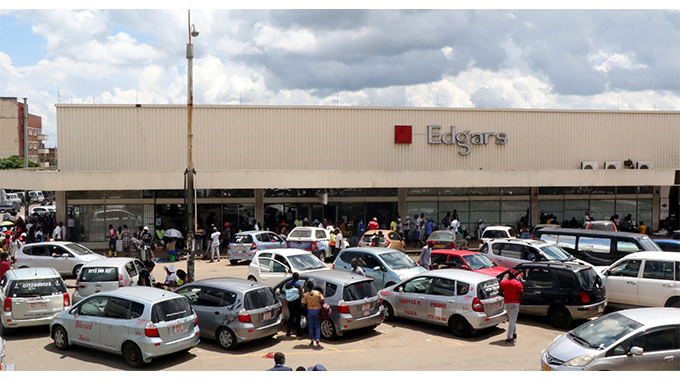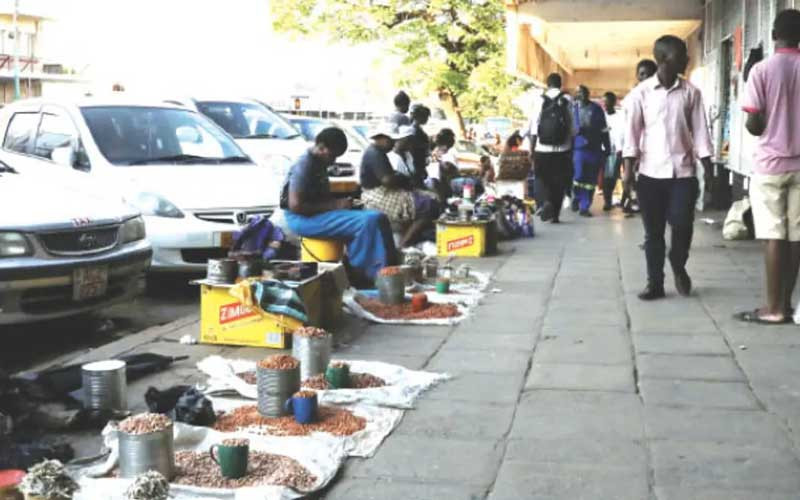Informal traders in shops clash with pavement vendors in Bulawayo
Informal traders selling in the shops of Bulawayo have raised concerns and lamented people who sell on the pavements.
Zimbabwe is filled with informal traders in shops and on pavements due to unemployment and economic crisis. Although both groups are in the business of selling goods, the former is now lamenting the latter.
“These people selling on the pavements are taking our customers,” says Alice, who owns a clothing store near Tredgold.
She added, “They sell at cheaper prices and they don’t pay any rent or license fees like we do. We are struggling to make ends meet because of them.”

RELATED CONTENT: What Are Key Skills for MSME’s Success in Bulawayo?
A Decision To Be Made
Many informal traders in shops share Alice’s views. They believe that the council needs to intervene and either provide spaces for these vendors or remove them from the pavements.
“It’s not fair that we have to pay so much money and follow all the regulations, while these people can just set up shop anywhere they want,” said a small grocery store owner in the city centre, Tendai Dube.
She declared, “We need to level the playing field and make sure that all businesses operate under the same rules.”
On the other side of the debate are the pavement vendors who feel that they have every right to sell goods on the streets.
“We are not moving from the pavements because we have nowhere else to go,” stated a vegetable vendor, Tichaona, who sells fruits and vegetables near Lobengula Street. “If the council wants us off the streets, they need to provide us with alternative spaces where we can continue to make a living.”

RELATED CONTENT: The Informal Sector in Zimbabwe: 90% Unemployment Rate?
Renting Proper Shop Spaces
Many of these vendors also cite the high cost of living in Zimbabwe as a reason why they cannot afford to rent proper shop spaces.
“Selling on the pavement is the only way I can make enough money to survive. I have to support my family and pay my children’s school fees,” indicated a second-hand clothing seller, Sibusiso Nyathi.
The issue of informal trading in Bulawayo has been an ongoing one, with the council struggling to find a solution that satisfies both formal and informal business owners. The construction of the new Egodini mall was meant to provide new spaces for informal traders, but delays in the project have left many still operating on the streets.
In the meantime, both informal and formal businesses continue to struggle in a city that is battling high unemployment rates and a struggling economy.
“We need to find a balance between allowing people to make a living and also ensuring that we are all following the rules,” says Alice. “I’m hopeful that the council will find a solution that works for everyone.”
#News in Bulawayo #News in Zimbabwe Artist Arts BCC Bulawayo Bulawayo City Council Bulawayo economy Bulawayo industry Bulawayo news Bulawayo Police Bulawayo Water Bulawayo Water Crisis Bulawayo Women entrepreneurship Business Women Cholera Community Culture Currency Drug Abuse Drugs Economy Farmer Farmers Farming Informal Sector Informal Traders Mining MSMEs Music News in Bulawayo News in Zimbabwe Police Police in Bulawayo Vendor Vendors water Water Crisis Water Shortage water supply issue Women entrepreneurship ZESA Zimbabwean economy Zimbabwe news Zimbabwe water crisis ZRP
Our stories told by us!
Join us for all News in Bulawayo and Bulawayo News in Zimbabwe.













Comments 2